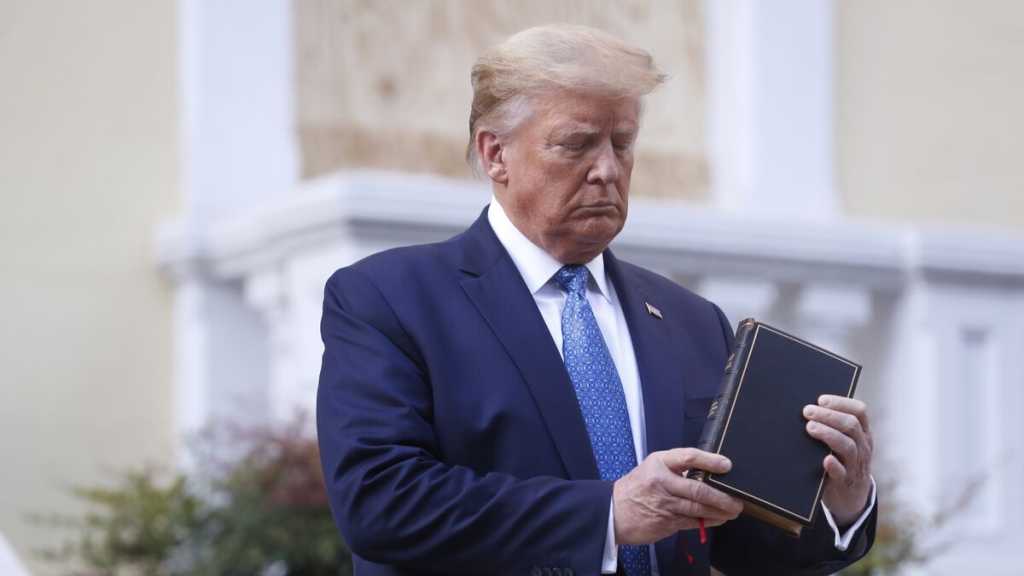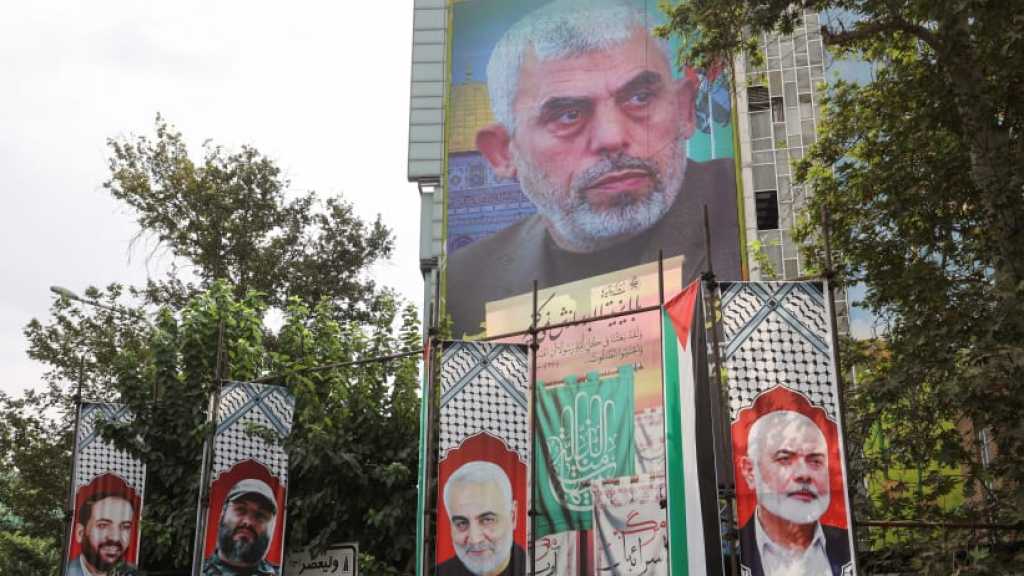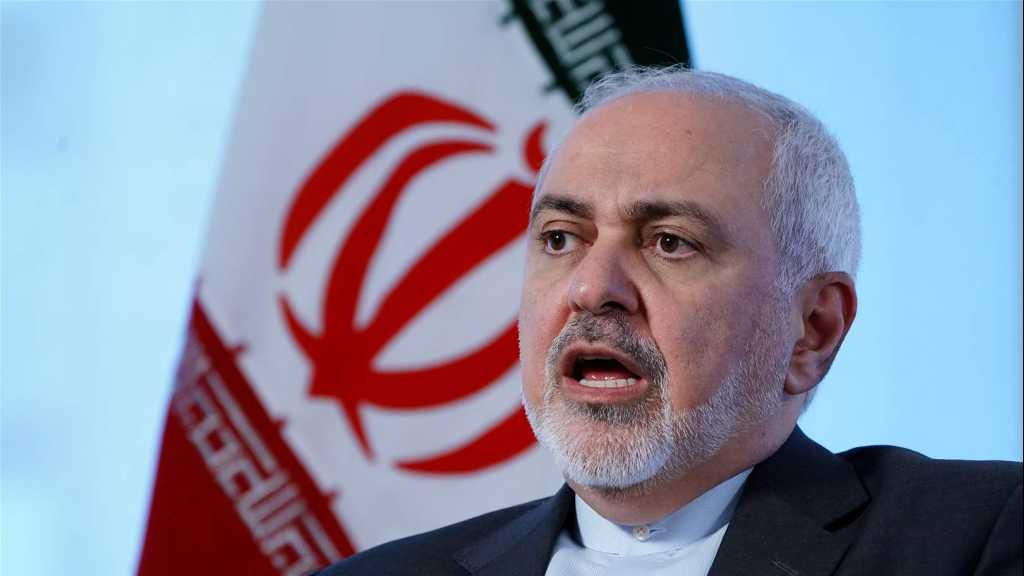Trump on Bin Salman: He Has Lice and Will Pay!

Ali Mrad
The scene of last month's press conference at the White House in which Trump revealed promises by the Saudi Crown Prince Mohammad Bin Salman to pay Washington is still fresh in the eyes of the observers. When Trump carried the cardboards and laid them on Bin Salman's lap, he explained to the world how to acquire the Saudis' wealth that he is seeking. On Tuesday (April 24), Trump repeated for the hundredth time in front of Macron what he wanted from the Gulf countries, saying: "we've spent $7 trillion in the Middle East and we've got nothing for it. The countries that are there, that you all know very well, are immensely wealthy. They're going to have to pay for this. And they will also put soldiers on the ground ... And we will in fact bring lots of people home."

Trump deliberately repeated his intention to withdraw his troops from Syria in front of Macron, who had announced after the tripartite aggression on Damascus that he persuaded Trump to keep his forces there. He repeated the word "pay" when he spoke of countries that "you all know very well" (some Gulf states) as if he was sending a message to Riyadh and Abu Dhabi that his plan to replace his forces with Saudi and UAE nationals with all financial costs covered could not be amended or canceled. It is clear that the Saudis are trying to maneuver through and evade the plan that Trump envisaged. They do not object in principle to send troops to northern and eastern Syria, but on the condition that the Americans are present alongside their forces. In other words, they don't want the Americans to withdraw all their forces. They want them to leave a satisfactory number to protect them from attacks.
Saudi fears were evident in statements made by the Saudi Foreign Minister Adel al-Jubei that were carried by the kingdom's official news agency on Tuesday. He said, "according to President Trump's statement, Qatar has to pay for the US military presence in Syria and send its military forces there." Al-Jubeir's speech falls within the strategy of "turning a deaf ear" when he tries to deflect what Trump said onto Qatar, as if the main target wasn't Riyadh. Trump was also quoted as saying that the countries he talked about would fall within two weeks in the absence of US protection. Al-Jubeir wanted to attack Qatar exclusively when he suggested that "if the U.S. withdraws the American protection at its military base in Qatar, the regime would fall in less than a week."
The pathetic level of Saudi Arabia's exposure, to the extent of being publicly blackmailed by Trump, raises a fundamental question about Riyadh's options if it decides not to comply with the US President's demands. Can Mohammed bin Salman really afford to say "no" to Trump and refuse to pay for the military presence in northern and eastern Syria? Would he dare to refuse to send soldiers (both his soldiers or even mercenaries like those in Yemen)? He chose to climb to the throne at the expense of other princes of the ruling family, resulting in the accumulation of affected princes who would not remain silent for long. He put himself and his entertainment committee in the face of the Wahhabi religious current, while he imposed taxes on the ordinary people and increased the prices of goods and services. He reached a point of no return. He found no one but Trump to rescue him and allow him to reach his goal: to secure the throne and pass it on to his brother or son. Trump is well aware of Bin Salman's situation and how he put all his eggs in his basket. That is why he deliberately goes so far in humiliating him by repeating the need to "pay" in front of the media and cameras. But information indicates that he speaks out even more openly about his views on Bin Salman at the White House. An informed Arab source in Washington quoted a member of the US Congress and revealed to al-Ahed Website that after Trump met with Bin Salman last month in the Oval Office, he asked his staff to "examine the chairs and furniture that Bin Salman touched and sat on, to check if he had left lice behind for them to clean."
This is how the American President viewed his "friend" when he received him at the White House on March 20.
Trump will never stop expressing this view of belittlement on every occasion he sees fit to blackmail the prince to pay more. Trump is not the only one with this view. The source adds that the new National Security Adviser, John Bolton, told some of his senior White House colleagues a few days after his appointment - speaking of Mohammed bin Salman - that "this Bedouin cannot promise you anything or pay the contracts that he signed." The Bedouin might be euphoric after succeeding in the assassination of the head of the Supreme Political Council in Yemen, Saleh al-Samad, especially since he was frustrated during his recent visit to Washington because of his failure in the aggression on Yemen and his inability to accomplish any achievements. Bin Salman does not have the tools of tracking and espionage or even the security and military expertise within his forces necessary to carry out a complex operation such as the assassination of Samad. Therefore, many observers tend to accuse the Americans of directly planning and executing the operation to give Bin Salman a morale boost to continue. But nothing comes for free with Trump, the businessman, who seems to have added a new arena to blackmail his "friend" in Syria.
Source: Al-Ahed
Comments




